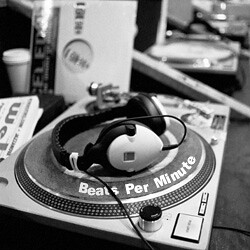Currently: Sipping on some Coca-Cola listening to some House Music
So, I’ve been getting back some of my midterms, and I must say… I did pretty good. I thought I would share what I do before a test, so that you guy’s can imitate if you think it’s a good method. Note that these methods go in the order that I think they work best, 1 being the best, and 5 being the 5th best. Also, I assume that with these ways, you do not receive a practice Exam of any kind.
5.) Read the textbook over again… and remember it.
If a Biology Exam covers Chapters 14, 54, 55, and 56. Reread them again. This may be very time consuming, but most textbooks nowadays BOLD the important terms and usually have a good chapter summary at the end to keep it concise. These are helpful, but their only helpful if you can use them in problems. Don’t just glance over it, think about it in your head as you read through it, and understand it rather than memorize it.
4.) Make some Cue Cards
Although this doesn’t work for every course, it’s very useful in courses where memorization is key. For example, memorizing the Derivatives of a logarithm, or memorizing the definition of all the terms related to Mitosis. I personally have two sets of Cue Cards, I have Cue Cards for Math and memorizing formulaes and such, and I also have a set for Biology. I don’t take too many courses where memorization is necessary, (Mine are mostly about numbers) so if you do take courses like that, I recommend using Cue Cards.
3.) Study Groups!… even if you’re a genius on your own.
Study Groups are excellent for pounding information in your head, also, it makes Studying a little bit less tedious and more fun. Your friends can help you answer questions you may have questions with, and if you are a genius, teaching someone how to do a problem will only further improve your genius-ness.
2.) Make your own Note Sheet even if you already have Notes.
Making your own notes is something I do for almost every class. (with the exception of English) I find making my own notes, and writing it in my own words, helps me understand what I wrote down. There’s also something about writing with your hand, it makes an imprint on your brain of what your just wrote. This may take awhile, but it will make a big difference. Another advantage to this, is on the day of the exam, you can review your notes as opposed to reading a massive textbook or looking at notes that may or may not make sense to you.
1.) DO YOUR HOMEWORK!!!!!!!!!
Doing homework is the best possible way to study for ANYTHING. I find that if I keep up with Math / Physics / Chem / Bio Homework, when it comes time to study for an Exam, I think to myself “I know this, why am I even studying?”. Doing homework may seem like a hassle to do everyday, but in the long run, when it comes time to studying. It will save you loads of time.
For ALL OF THE ABOVE make sure you NEVER GET STRESSED OR ANGRY. Stress and Mood Swings are a big reason for people doing bad in exams. I try to never get stressed for an Exam, and stay easy going. I go into exams with confidence, thinking in my head, “I’m going rock this exam!” and I come out usually doing so.
Hopefully these help, for future exams! Post comments of any methods of studying you guys may use.

{ 4 comments… read them below or add one }
Wow. You seem so much more study ready/efficient than I am XD
I agree with the no stress thing. I try my best not to stress until after the exam is over XD
Jordan, this is all really good advice and I know it works, cause I know your marks. You are doing so good! Again, we are very proud of your accomplishments. Keep it up.
Excellent post! All of it is great advice that I should be heed!
Hi Jord! Great tips!!! I used to make cue cards for all of the reactions I learned in organic chemistry, and I ended up with hundreds and hundreds of cards. 🙂